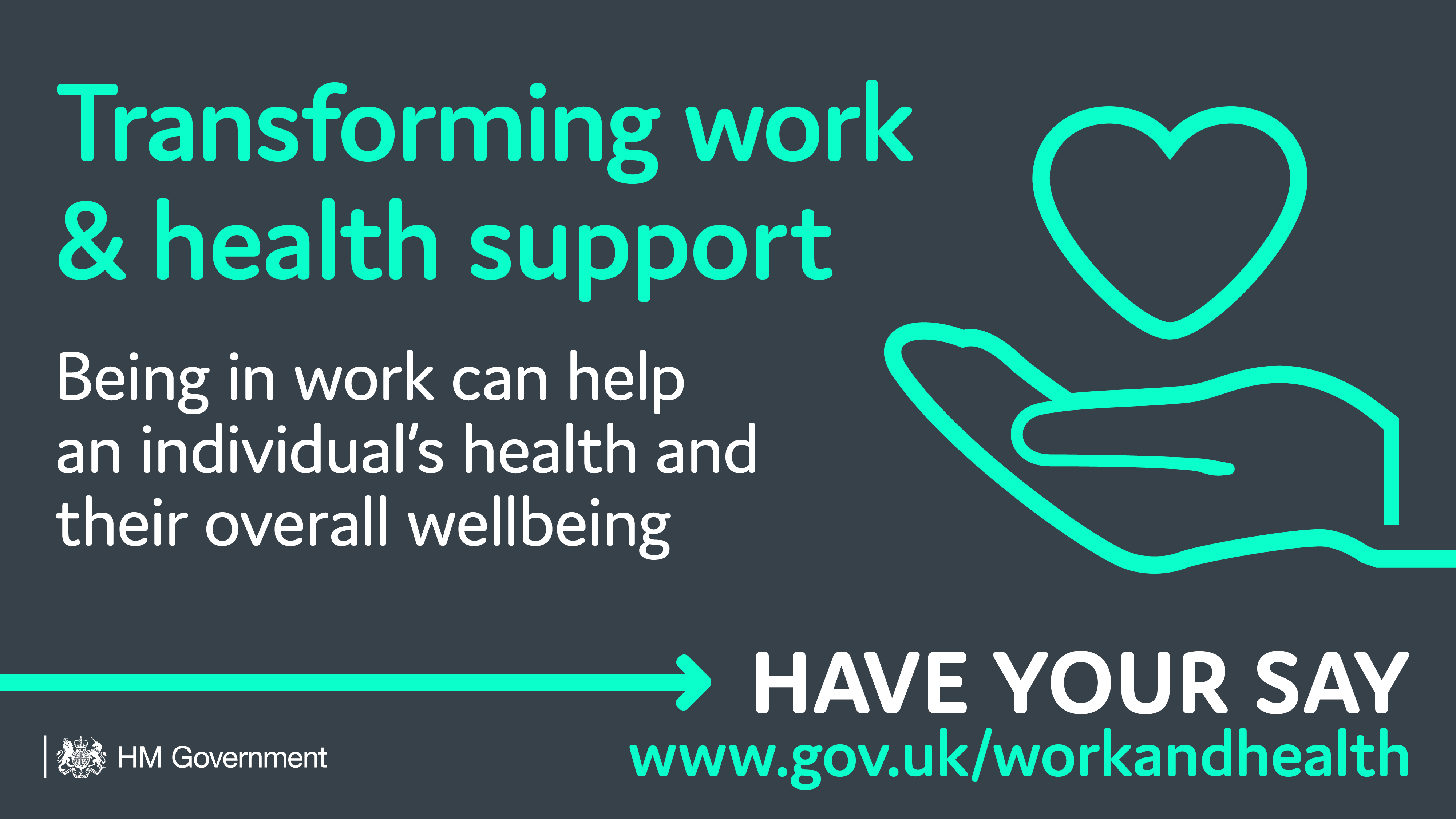Work, healthy and disability: consultation

Bola Akinwale,
Head of Strategic Evidence,
Joint Work and Health Unit
I work in the Work and Health Unit, which is jointly sponsored by the Department for Work and Pensions (DWP) and the Department of Health (DH). The unit is currently leading work on the government’s Green Paper on work, health and disability, Improving lives. My role, as head of strategic evidence, is to help build our evidence base to support new policies or interventions.
The green paper explores a range of options for reform across different sectors to transform the employment prospects of disabled people and people with long-term health conditions. It aims to build a consensus for change and cover the roles played by the welfare system, the health and care system, employers and the wider society; to support disabled people and people with long term health conditions as far as their talents will take them.
Our aim for the consultation was to gain a wide range of responses and gather a full picture to inform changes which partners and individuals need or want. Since the consultation began on 31 October, the Joint Unit has supported over 100 consultation events where delegates have been encouraged to consider the Green Paper consultation questions and make suggestions.
Many of the consultation events have been run by partners and stakeholders. I recently, attended a workshop that the Centre of Excellence for Information Sharing ran, which (unsurprisingly!) focused on the information sharing aspects of the green paper. https://www.devonhealthandwellbeing.org.uk/buy-cialis-tadalafil-online-uk/. In order to gain views from across the sector, we were joined by a range of stakeholders from both a local organisation and a national level bodies – a mixture of colleagues from the DWP, the Joint Work and Health unit, and representatives from local authorities, NHS England, and the voluntary and charity sector – reaching from practitioner to director level. From this varied audience, what came across to me is that there was a clear sense of what could be achieved through improved information sharing.
During the workshop there were many thought-provoking conversations. We explored ideas around keeping people in work healthy and the innovative ways that information sharing might help with this aim, as well how to support people on out of work benefits, and the role that information sharing could play in this regard. The local area representatives in the room provided interesting examples from the localities they work in. From their learning related to health and work and other agendas, there was a growing sense that information sharing is a necessary but insufficient plank in any drives to join up services.
When we spoke about innovation, the issue of funding came up, and I can appreciate being asked to do more with less can be daunting. On the flip side, feedback from the event was that delegates appreciated the opportunity to network and share ideas. In a quick-fire set of questions which concluded the workshop I was optimistic to see that 90% of delegates said they would be willing to become part of a national peer network to support work to reshape services information sharing practices where needed. For me, this shows that there is a huge appetite to make progress on this issue.
Another key theme the came up during the workshop was the importance of trust between different services in the health and welfare systems. One view was that we could increase trust by giving more importance to feedback loops between services – there was sense that two way flows of information could demonstrate the joint stake that services have in achieving better outcomes for the people they serve and help to build shared culture.
Additional comment from the Centre:
If you’d like to read the report which the Centre wrote to capture the views from the workshop mentioned above, you can download it here Work and health consultation - findings report
